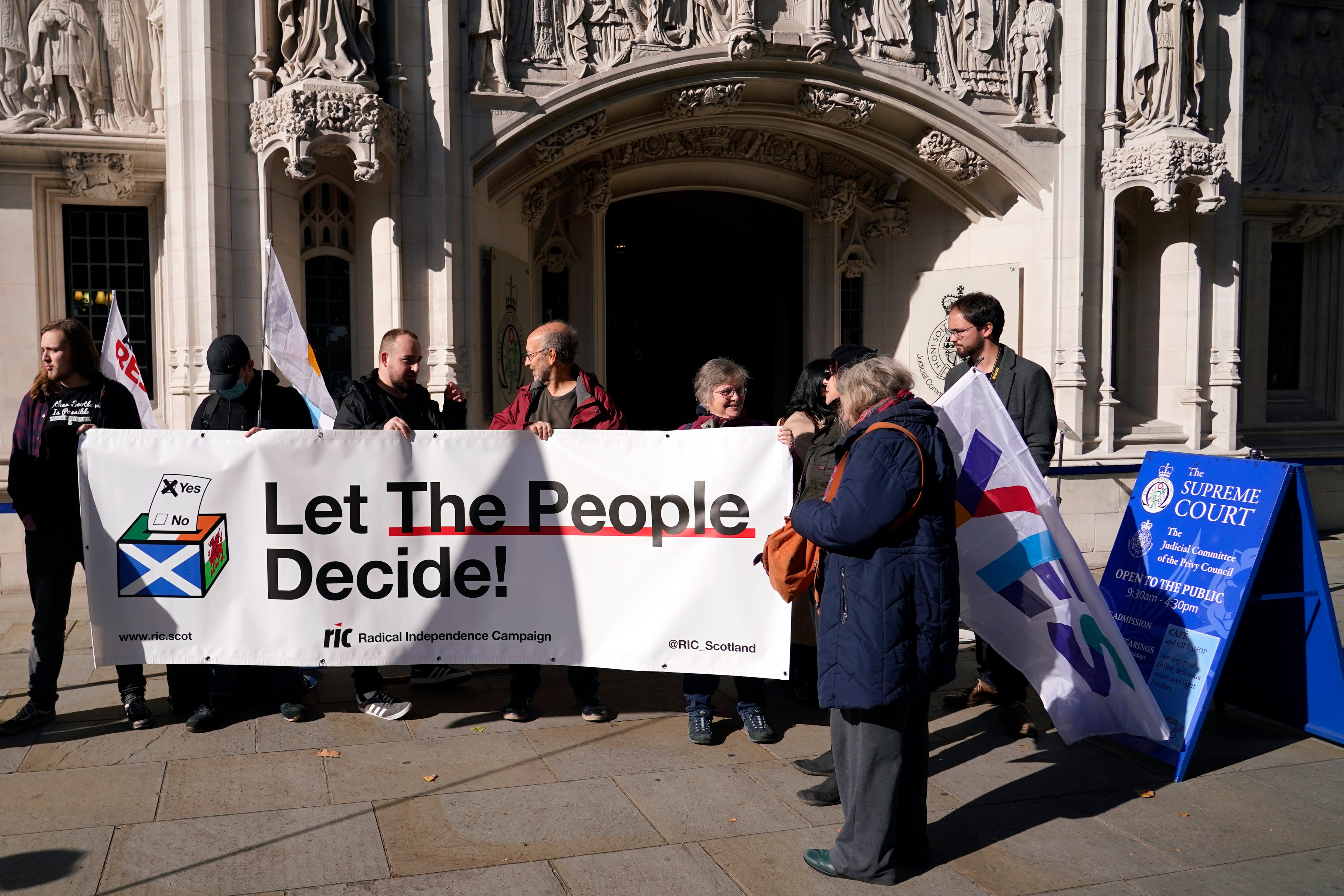UK's top court to rule on Scottish bid for independence vote
Britain’s Supreme Court is due to rule on whether Scotland can hold a vote on independence without the consent of the U.K. government

Your support helps us to tell the story
From reproductive rights to climate change to Big Tech, The Independent is on the ground when the story is developing. Whether it's investigating the financials of Elon Musk's pro-Trump PAC or producing our latest documentary, 'The A Word', which shines a light on the American women fighting for reproductive rights, we know how important it is to parse out the facts from the messaging.
At such a critical moment in US history, we need reporters on the ground. Your donation allows us to keep sending journalists to speak to both sides of the story.
The Independent is trusted by Americans across the entire political spectrum. And unlike many other quality news outlets, we choose not to lock Americans out of our reporting and analysis with paywalls. We believe quality journalism should be available to everyone, paid for by those who can afford it.
Your support makes all the difference.Britain’s Supreme Court is due to rule Wednesday on whether Scotland can hold a vote on independence without the consent of the U.K. government, a case with huge implications for the future of the United Kingdom.
The semi-autonomous Scottish government has asked the top court to decide whether the Scottish Parliament can legislate to hold a referendum next October with the question “Should Scotland be an independent country?”
The Conservative U.K. government in London refuses to approve a vote, saying the question was settled in a 2014 referendum that saw Scottish voters reject independence by a margin of 55% to 45%.
The pro-independence government in Edinburgh wants to revisit the decision, though, arguing that Britain’s departure from the European Union — which a majority of Scottish voters opposed — has radically changed the political and economic landscape.
First Minister Nicola Sturgeon argues that she has a democratic mandate from the Scottish people to hold a new secession vote because there is an independence-supporting majority in the Scottish Parliament.
During Supreme Court hearings last month, Dorothy Bain, the Scottish government’s top law officer, said the majority of Scottish lawmakers had been elected on commitments to hold a fresh independence referendum. She also said a referendum would be advisory, rather than legally binding — though a “yes” vote would create strong momentum for Scotland to break away.
U.K. government lawyer James Eadie argued that power to hold a referendum rests with the U.K. Parliament in London, because “it’s of critical importance to the United Kingdom as a whole,” not just Scotland.
Polls suggest Scots are about evenly split on independence — and also that a majority of voters do not want a new referendum anytime soon.
The five Supreme Court justices deciding the case could rule that Scotland has the authority to hold a referendum, or that it doesn’t – or they could simply refuse to rule at all.
Scottish legal expert Andrew Tickell said that “even if the Scottish government win this and have the opportunity to pass a piece of legislation … this isn’t the end of the story.”
Independence supporters plan to rally outside the Scottish Parliament in Edinburgh and at other sites after the verdict, whatever the outcome.
Scotland and England have been politically united since 1707. Scotland has had its own parliament and government since 1999 and makes its own policies on public health, education and other matters. The U.K.-wide government in London controls matters such as defense and fiscal policy.
Sturgeon says that if her government loses the court case, she will make the next U.K. national election a de-facto plebiscite on ending Scotland’s three-century-old union with England. She has not given details of how that would work.